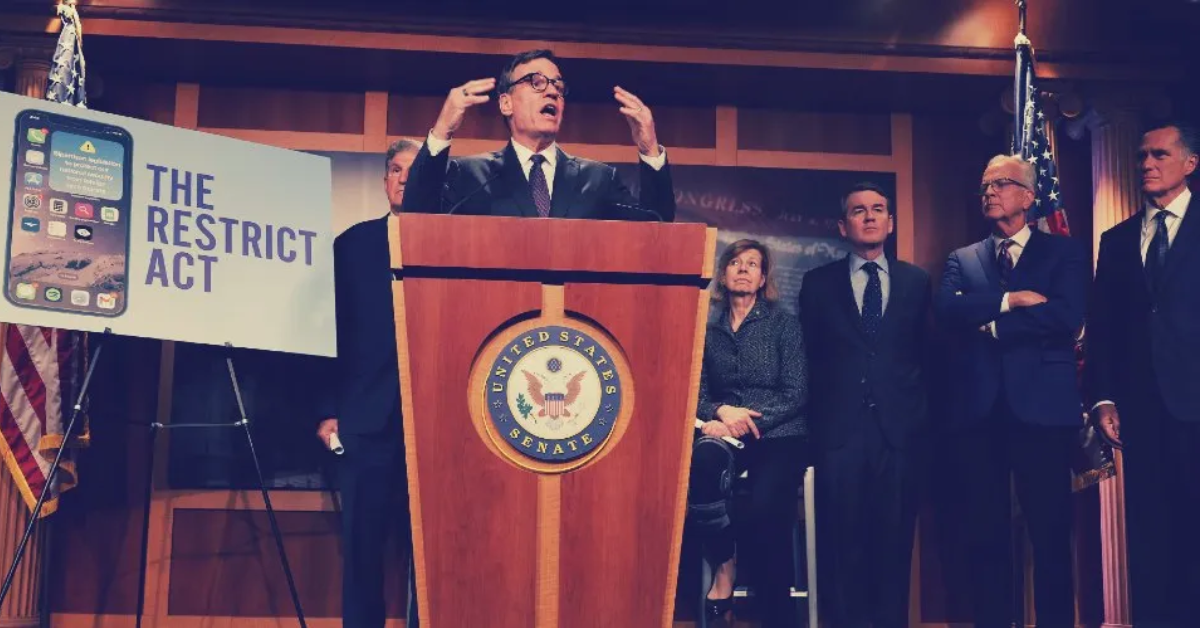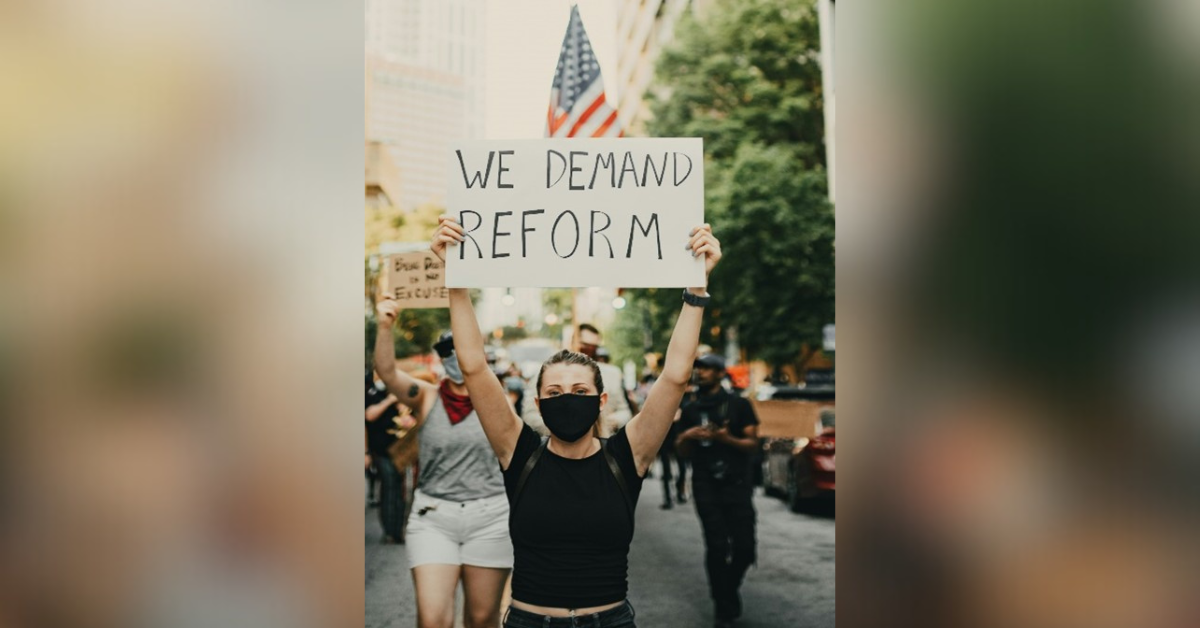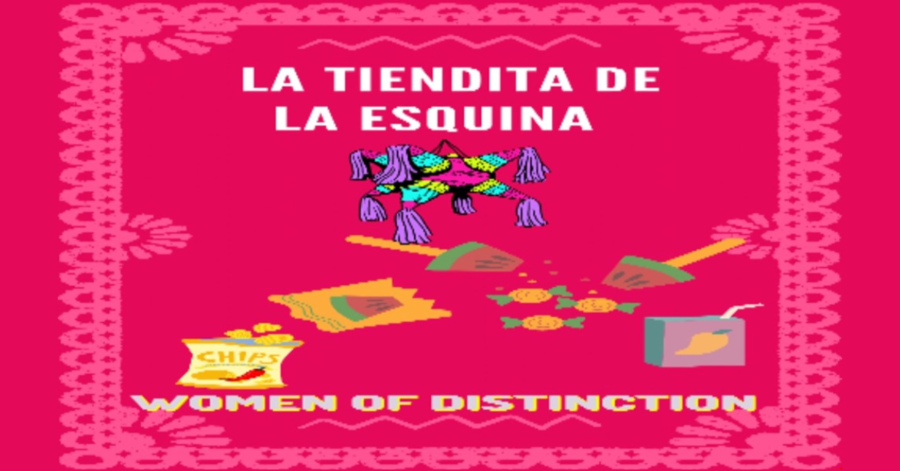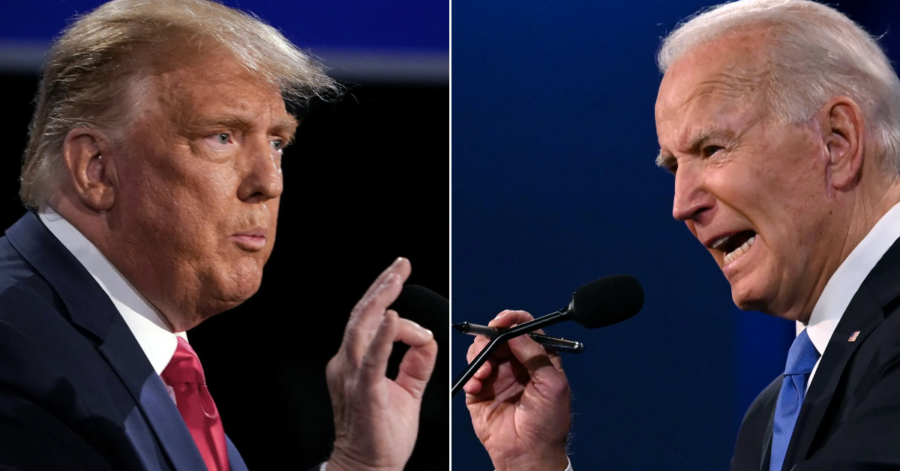The RESTRICT Act, which stands for “Restricting the Emergence of Security Threats that Risk Information and Communications Technology Act,” was introduced in the Senate on March 7, 2023.
Here is the bill summary for S.686, introduced by Republican Senator Mark Warner of Virginia:
“This bill requires federal actions to identify and mitigate foreign threats to information and communications technology (ICT) products and services (e.g., social media applications). It also establishes civil and criminal penalties for violations under the bill.
Specifically, the Department of Commerce must identify, deter, disrupt, prevent, prohibit, investigate, and mitigate transactions involving ICT products and services (1) in which any foreign adversary (such as China) has any interest, and (2) that pose an undue or unacceptable risk to U.S. national security or the safety of U.S. persons.
Additionally, Commerce must identify and refer to the President any covered holding (e.g., stock or security) that poses an undue or unacceptable risk to U.S. national security or the security and safety of U.S. persons. If the President determines that the holding poses such a risk, the President may compel divestment of or otherwise mitigate the risk associated with the holding.
Commerce may (1) designate any foreign government or regime as a foreign adversary upon a determination that the foreign government or regime is engaged in a long-term pattern or serious instances of conduct significantly adverse to U.S. national security or the security and safety of U.S. persons, and (2) remove such a designation. Commerce must notify Congress before making or removing a designation; these actions are subject to congressional disapproval.
The bill outlines (1) enforcement mechanisms, including actions by the Department of Justice; and (2) civil and criminal penalties for violations.”
According to Tulsi Gabbard, the Democrats and Republicans who are trying to pass the RESTRICT Act are trying to market it as something that it is not. Yes, the RESTRICT Act bans TikTok, but it does much more than that. It gives unchecked power to unelected bureaucrats in the Commerce Department to tell us which social media apps we are and are not allowed to use. It gives them unfettered access to our data and browsing history and criminalizes the use of VPNs to access these supposed restricted applications, all in the name of national security.
Now, the RESTRICT Act has gained a lot of notoriety for the banning of the very popular social media app TikTok being included in the bill. But the banning of VPNs to access supposedly restricted applications is another potential outcome of the bill that not many people are talking about. The bill could also block or disrupt cryptocurrency transactions and, in extreme cases, block Americans’ access to open-source tools or things like Bitcoin.
This bill has received criticism from many different parties. There has been bipartisan criticism against the bill for having a lack of judicial oversight and transparency in its mechanisms of enforcement, and for containing broad and vague language, with many even comparing the bill to the Patriot Act, the act signed into law by President George W. Bush to deter terrorism following the September 11, 2001 attack.
Mark Warner’s office has stated that he introduced the bill as intended to target corporate entities “engaged in sabotage or subversion of communications technology in the US” and not to target end-users (the American public) necessarily. He has not commented on complaints about the bill’s possible uses beyond the stated intent.
People like Tucker Carlson and Alexandria Ocasio-Cortez, two people with total ideological differences, are both opposed to the RESTRICT Act.
The RESTRICT Act has been read twice in the Senate and referred to the Committee on Commerce, Science, and Transportation, but no action has been taken since then. As time passes, we will see if this bill is likely to pass.
















